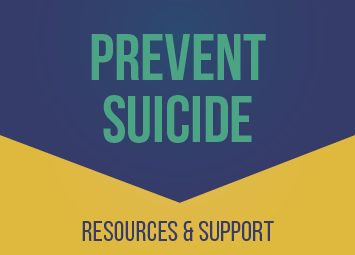Counseling and Psychological Services Protocol
The actions of Counseling and Psychological Services staff may vary depending on whether we are brought in before, during, or after a student’s contact with police or emergency room personnel.
Counseling and Psychological Services Center Staff will be prepared to do the following:
- If the sexual assault has just occurred, make sure the survivor is safe from further harm. Help her/him get a support person to be with her/him, and make sure doors and windows are locked.
- Encourage the survivor to seek medical attention to assure that injuries and not-so-obvious internal injuries are treated. Medical attention is available at the emergency room at Watauga Medical Center (262-4164). Medical attention that does not involve concern for prosecution may be received within the limited hours of the Student Health Center (262-3100). If needed, the counselor will help arrange transportation (e.g. University Police, ambulance) and call the hospital in advance to inform them of preliminary information.
- Ask the survivor not to shower, clean or change clothes before making a decision about a physical examination or forensic exam. They should bring a change of clothes with them if they go to the emergency room.
- Explain possible financial costs and resources for forensic exam.
- Make sure a female counselor is made available if needed or requested.
- Establish a rapport with the student, gathering information for assessment and service delivery, and averting a potential state of crisis.
- Validate the emotional reactions of the person. Intense, painful reactions are common responses to a traumatic event. Let the student know that their emotional experience is a normal reaction to an abnormal event.
- De-emphasize clinical, diagnostic, and pathological language communicating person to person rather than “expert” to “survivor”, using straightforward terms.
- Ask the survivor if she or he wants the accompaniment of a friend, roommate, family member, RA or RD, significant other, female officer, etc., while restricting the number of people in the immediate area to reduce noise, distraction, and tension.
- Inform the survivor about reporting options to the law enforcement office with jurisdiction.
- Have as a primary concern the emotional well being and support of the student, and to establish a plan for possible follow-up counseling services.
- Provide the complainant constant reassurance that the choice for sexual activity should always be mutual.
- Attempt to help the student regain a sense of control and make her or his own decisions on how to handle the assault (when possible).
- Inform the survivor of her or his rights and choices, and help her or him explore options.
- Support the student in making decisions about whom to tell and how to proceed.
- Explain the limits of confidentiality.
- Give the survivor the handout on “What Should You Do after a Sexual Assault or Rape” because the complainant’s memory may not be clear, or he or she may be in a state of shock.
- Give supportive others that accompany the survivor a copy of the handouts, “Do’s and Don’ts of Helping Sexual Assault Survivors,” and “Guidelines for Helping Someone Who Has Been Sexually Assaulted”.
- Assume a helping role, not an investigating role.
- Help the student identify ways to comfort herself/himself, self-soothe and perhaps relax.
- Help the person identify sources of support including friends, family, clergy or other support networks.
- Provide crisis counseling for friends and loved ones of survivors distressed by the event.
- Encourage and help the survivor to resume a regular lifestyle as soon as possible.
- Provide follow-up counseling, supportive assistance, and/or referral, if desired.
- Counselors avoid any bias or judgments that reporting or confronting is good and disengaging responses are weak and inadequate. The choice should be the survivor’s.
- The Counseling Center participates with the local Sexual Assault Response Team (SART) to insure cooperative and informed relationships for all parties involved in response to sexual assaults.

